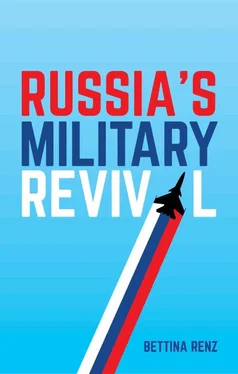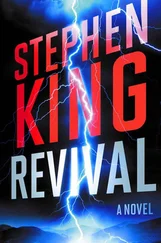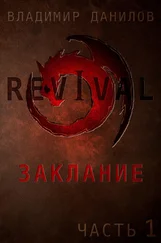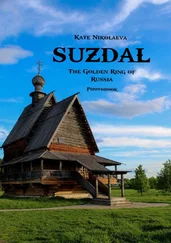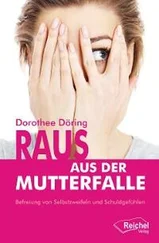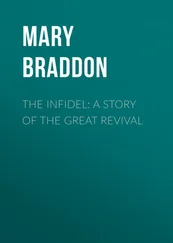Chapter 5assesses developments in Russian military thinking since the end of the Cold War with a particular emphasis on the ‘hybrid warfare’ discussion. The chapter argues that the ‘hybrid warfare’ debate does not adequately reflect developments in Russian strategic thought and misrepresents the country’s ambitions as a global military actor. The perception of Russian backwardness in military thinking during the 1990s and 2000s was exacerbated by the preoccupation in Western strategic thought with counterinsurgency warfare, which pushed the perceived relevance of ‘traditional’ war-fighting onto the backburner. In Russia, the idea that conventional warfare was a thing of the past never established itself as a consensus view, because it did not correspond to the country’s strategic priorities. The chapter also engages with the problems pertaining to the concept of ‘hybrid warfare’ as an analytical tool. Russia’s approach in Crimea showed that the country had vastly improved its ability to fine-tune military tactics to the requirements of different conflict scenarios. However, it has not found a new key to military success in the form of ‘hybrid warfare’.
The conclusion summarizes the book’s main arguments. Returning to the three assumptions in Western reactions outlined above, it suggests that a more informed understanding of the timing, reasons and scope of the military revival puts into question the sometimes alarmist interpretations of Russia as an imminent threat to international security. The Kremlin has become more assertive and better military capabilities have offered it more opportunity to use force in the future. This does not mean, however, that stronger armed forces automatically signal Putin’s desire to pursue expansionist policies. Moscow has always viewed a strong military as essential, so the revival was only a matter of time. Russian foreign policy is determined by drivers that are much more complex than the simple wish for global domination. In any case, the country’s relative military power is still limited in many respects. The conclusion also considers possible options for neighbouring states and for the West in responding to a more assertive and militarily capable Russia. There is no easy way out of the significant breakdown in relations since 2014. However, it is clear that policies based on a lack of understanding of the Kremlin’s intentions will significantly increase the danger of tensions spiralling out of control.
Chapter 1
Russian foreign policy and military power
With Hanna Smith
This chapter outlines the meaning of military power in Russian foreign policy throughout its history. An understanding of this is important for a nuanced assessment of recent developments and of the potential future implications of stronger Russian armed forces. The process of military modernization since 2008 did not occur in a vacuum and can only be understood within the context of relevant historical developments, political processes and foreign policy priorities. The nexus between military power and foreign policy is obviously important. However, to date this link has rarely been addressed explicitly or systematically in studies of the military in post-Soviet Russia. Major studies of the subject have tended to focus on capabilities, leadership, civil-military relations or organizational changes, but they have rarely systematically studied the role of the military as a tool of Russian foreign policy (see, e.g., Arbatov 1998; Aldis and McDermott 2004; Golts and Putnam 2004; Barany 2005; Vendil Pallin 2009). Whilst the study of capabilities and effectiveness of the Russian military is essential, it tells us little about Moscow’s intentions to use these capabilities. It is the Kremlin’s possible intentions that have led to fears about the country’s resurgence since 2014.
Estimating a country’s intentions regarding future uses of military force is not straightforward. As John Mearsheimer put it, ‘unlike military capabilities, intentions cannot be empirically verified. Intentions are in the minds of decision makers and they are especially difficult to discern’ (2010: 79). Although the Kremlin’s intentions cannot be established for certain, studying the significance of military power in Russian foreign policy throughout history can flag up certain patterns and developments that give an indication of possible future trends, likelihoods and possibilities. The chapter suggests that Russia has always viewed a strong military as important. However, the reason for this was never limited to the desire to pursue aggressive or expansionist policies. As Robert Art noted, military power is a pliable tool of statecraft that cannot be divorced from foreign policy. As such, the utility of military power is not limited to the fighting of wars and defeating of opponents. In Art’s words, ‘force is “fungible”. It can be used for a wide variety of tasks and across different policy domains; it can be employed for both military and non-military purposes’ (1996: 8). This is important also for the study of military power in Russian foreign policy. As the chapter will show, today, as it has done in the past, the Kremlin views this power as a flexible tool that can be used in symbolic and physical ways in pursuit of specific objectives. This puts into question the interpretation of the recent military revival as a necessary indication of the Kremlin’s intent to expand or to launch a bid for global domination.
The chapter is structured around four broad issues that are widely recognized as important for a nuanced understanding of Russian foreign policy. The issues addressed in this chapter are not the only factors that have shaped Russia’s international politics throughout its history. Alfred J. Rieber has previously identified what he called ‘persistent factors’ as a starting point for analysing Russian foreign policy trends: relative economic backwardness, porous frontiers, a multinational society and cultural alienation (1993). This chapter shares the view that there are persistent factors in Russian foreign policy, which, as Rieber has put it, ‘are the result of an evolutionary process, features of historical life that have their origins in the period of state formation in the fifteenth and sixteenth centuries’ (2007: 206). For the purpose of this chapter, however, the focus is on an adapted set of factors that addresses those of Rieber indirectly, but is more suitable for the study of the military in Russian foreign policy specifically. The factors addressed in the chapter are as follows: the first is Russia’s great power status and its quest for international recognition as such a power; second, sovereignty as a factor in Russian foreign policy is outlined with a particular emphasis on the country’s specific understanding of the concept; third, Russia’s imperial legacy, including imperial expansion, is addressed; fourth and finally, the chapter looks at multilateralism in Russian foreign policy.
The significance of these four factors in shaping Russian foreign policy has been highlighted over the years by various scholars writing on Russian history and politics. Leading western historians of Russian national and imperial identity, such as Geoffrey Hosking (1998, 2001), Hugh Seton-Watson (1989), Vera Tolz (2001) and Ronald Suny (2001), have each discussed some of these factors, which, in their eyes, have been drivers of Russian foreign policy since the time of Ivan the Terrible, Peter the Great and the Napoleonic wars. Other scholars, focusing on post-imperial Russia, have variously detected the same factors in Soviet foreign policy making (Dallinn 1960; Ulam 1968; Bialer 1981; Nation 1993) and also in post-Soviet foreign policy (Petro and Rubinstein 1996; Donaldson and Nogee 2009; Legvold 2009; Trenin 2011).
The discussion in this chapter of Russian foreign policy throughout its history is by necessity brief and selective. However, it provides essential context and background for the book’s central argument: the recent military revival did not occur in a vacuum. It can only be understood within the context of relevant developments in Russian foreign policy and the role of the military within it.
Читать дальше
